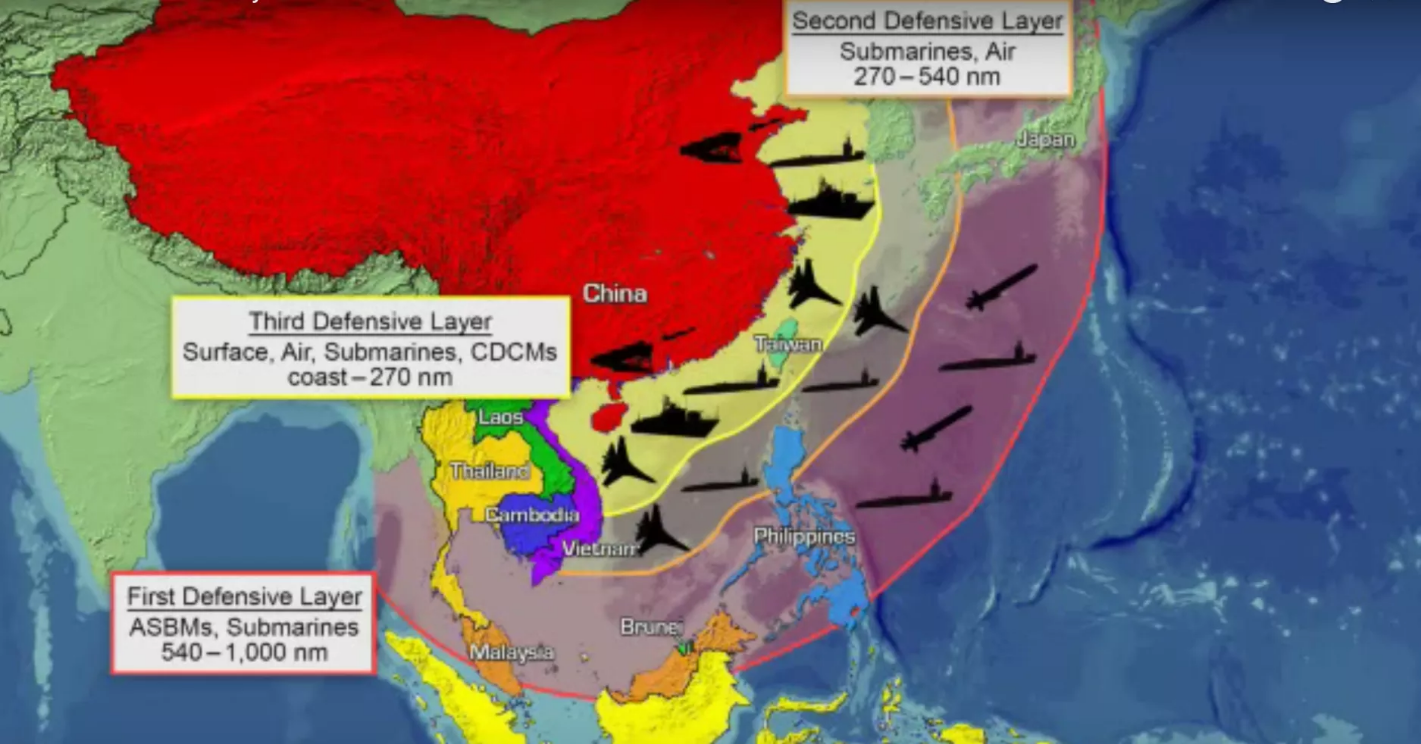Philippine Missile Deployment In South China Sea: China's Concerns

Table of Contents
Territorial Disputes and Sovereignty Claims
The South China Sea is a complex web of overlapping territorial claims, and the Philippine missile deployment directly impacts China's assertions of sovereignty. The core of the conflict lies in the clash between China's expansive "nine-dash line" claim and the Philippines' Exclusive Economic Zone (EEZ), as defined by the United Nations Convention on the Law of the Sea (UNCLOS).
-
Nine-Dash Line vs. Philippine Exclusive Economic Zone (EEZ): China's nine-dash line encompasses a vast area of the South China Sea, encompassing areas claimed by several other nations, including the Philippines. The Philippines, relying on UNCLOS, asserts its rights within its designated EEZ, leading to significant overlaps and disputes.
-
Specific islands/features involved in the dispute (e.g., Spratly Islands): The Spratly Islands, a strategically vital archipelago, are at the heart of the dispute. The Philippine missile deployment on features within or near the Spratlys directly challenges China's claim to these islands and their surrounding resources. Other features, like the Scarborough Shoal, also contribute to the complexity of the overlapping claims.
-
Historical context of the territorial disputes: The historical context of these disputes is complex and often contested. China points to historical fishing rights and maritime presence, while the Philippines and other claimant states emphasize their own historical ties and adherence to international law. This historical baggage significantly complicates any attempt at resolution.
The perceived threat to Chinese sovereignty, fueled by the Philippine missile deployment, significantly increases the potential for escalation. China views this deployment as a direct challenge to its claims and a potential precursor to further military actions.
Military Posturing and Regional Power Dynamics
The Philippine missile deployment dramatically alters the military balance of power in the South China Sea. It enhances the Philippines' defensive capabilities, but also significantly impacts regional stability.
-
Increased US military presence and its implications: The deployment is closely linked to the enhanced US military presence in the region. This increased cooperation between the Philippines and the US is seen by China as a strategic encirclement, further fueling its concerns.
-
China's military modernization and its response to the deployment: China's ongoing military modernization program is partly a response to perceived threats from the US and its allies. The Philippine missile deployment will likely accelerate China's military build-up in the region, leading to an arms race and increased instability.
-
The role of other ASEAN countries in the South China Sea dispute: Other ASEAN (Association of Southeast Asian Nations) countries are closely watching the unfolding situation. Their responses and potential involvement will be crucial in determining the wider regional impact of the Philippine missile deployment.
China is deeply concerned about potential encirclement and threats to its strategic interests. The deployment signals a shift in regional power dynamics, potentially undermining China's ambitions in the South China Sea.
Economic Implications and Freedom of Navigation
The Philippine missile deployment carries significant economic implications, impacting trade routes and economic activities in the South China Sea.
-
Impact on fishing rights and resources: The deployment potentially restricts access to valuable fishing grounds, affecting the livelihoods of numerous fishermen from various nations.
-
Potential disruption to shipping lanes and global trade: The South China Sea is a crucial shipping lane for global trade. Any escalation stemming from the missile deployment could disrupt these crucial routes, leading to significant economic repercussions worldwide.
-
Economic repercussions for China and other regional economies: China, heavily reliant on the South China Sea for trade and resources, faces potential economic losses if the situation deteriorates. Other regional economies are also vulnerable to disruption.
China emphasizes its perspective on freedom of navigation and views the missile deployment as a potential impediment to it. Beijing sees the deployment as potentially escalating tensions and threatening the smooth flow of trade, vital for its economic interests.
The Role of International Law and Diplomacy
The legal framework governing the South China Sea dispute is primarily UNCLOS. The 2016 South China Sea arbitration ruling, which largely favored the Philippines, is a key element in the ongoing legal debate. Diplomatic efforts to de-escalate the situation are ongoing, but progress has been limited. The potential for international arbitration or mediation remains, though the willingness of all parties to participate is uncertain. The application of international law and sustained diplomatic engagement are crucial to resolving the conflict peacefully.
Conclusion
The Philippine missile deployment in the South China Sea constitutes a significant escalation of the ongoing territorial disputes with China. This move has prompted serious concerns in Beijing, impacting issues of sovereignty, regional power dynamics, and economic stability. China's response will be pivotal in shaping the future stability of the region.
Understanding the complexities of the Philippine Missile Deployment in the South China Sea is paramount for navigating this volatile geopolitical landscape. Further research into the international legal aspects and ongoing diplomatic efforts is essential for fostering peaceful resolutions and preventing further escalation. Stay informed on developments related to Philippine military deployments in the South China Sea and related issues to comprehend the evolving dynamics within this strategically crucial region.

Featured Posts
-
 Analysis Michael Strahans Interview And The Competitive Ratings Landscape
May 20, 2025
Analysis Michael Strahans Interview And The Competitive Ratings Landscape
May 20, 2025 -
 Man Utd Analyzing Amorims Latest Signing
May 20, 2025
Man Utd Analyzing Amorims Latest Signing
May 20, 2025 -
 Schumachers Return Red Bulls Unheeded Warnings And A Wasted Opportunity
May 20, 2025
Schumachers Return Red Bulls Unheeded Warnings And A Wasted Opportunity
May 20, 2025 -
 Nyt Mini Crossword Clues And Solutions March 13 2025
May 20, 2025
Nyt Mini Crossword Clues And Solutions March 13 2025
May 20, 2025 -
 Bribery Scandal Rocks Us Navy Admiral Robert Burke Convicted
May 20, 2025
Bribery Scandal Rocks Us Navy Admiral Robert Burke Convicted
May 20, 2025
